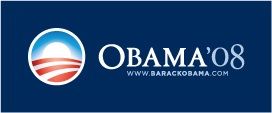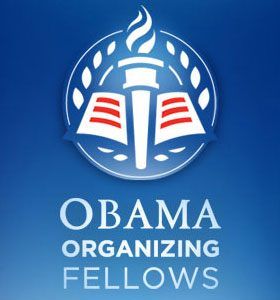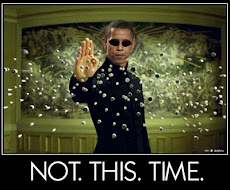Nat Turner was a Black man and the leader of a violent slave rebellion in Southampton County, Virginia, in 1831.
Nat Turner was one of the most controversial characters of nineteenth century America. Born into slavery, this African American youth organized the biggest slave rebellion in the United States of America in the early nineteenth century. Although it did not succeed in emancipating the slaves it busted the myth that they were contented with their lot and ultimately paved the way for abolition of slavery. Different people have different opinion about him. He was declared a prophet by his fellow slaves and respected as such.
In 1960, he became an icon of black power movement in the US. Even to this day some scholars hail him as a hero fighting for a just cause. Another group calls him a religious fanatic and a murderer, not different from modern day terrorists. They argue that his method was villainous and cannot be supported at any cost. Yet, one cannot deny the fact that the rebellion he organized was not for his own benefit; he tried to liberate his fellow slaves who were treated inhumanly by their white masters and punished severely at the slightest mistake. Nat himself was no exception to that. A large knot of bones in his right wrist was a pointer to the fact.
The rebels went from plantation to plantation, gathering horses and guns, freeing other slaves along the way, and recruiting other blacks who wanted to join their revolt. During the rebellion, Virginia legislators targeted free blacks with a colonization bill, which allocated new funding to remove them, and a police bill that denied free blacks trials by jury and made any free blacks convicted of a crime subject to sale and relocation. The slaves killed approximately sixty white men, women and children. Whites organized militias and called out regular troops to suppress the uprising. In addition, white militias and mobs attacked blacks in the area, killing an estimated 120, many of whom were not involved in the revolt.
In the aftermath, the state tried those accused of being part of Turner's slave rebellion, 18 were executed, 14 were transported out of state and 32 were acquitted.Turner hid successfully for two months. When found, he was tried, convicted, sentenced to death, and hanged. Across Virginia and other southern states, state legislators passed new laws to control slaves and free blacks. They prohibited education of slaves and free blacks, restricted rights of assembly for free blacks, withdrew their right to bear arms (in some states), and to vote (in North Carolina, for instance), and required white ministers to be present at all black worship services.
Born into slavery on October 2, 1800, in Southampton County, Virginia, the African-American boy was recorded as "Nat" by Benjamin Turner, the man who held his mother and him as slaves. When Benjamin Turner died in 1810, Nat became the property of Benjamin's son Samuel Turner. For most of his life he was known as "Nat", but after the 1831 rebellion, he was widely referred to as "Nat Turner". Turner knew little about the background of his father, who was believed to have escaped from slavery when Turner was a young boy.
Turner spent his entire life in Southampton County, a plantation area where slaves comprised the majority of the population. He was identified as having "natural intelligence and quickness of apprehension, surpassed by few." He learned to read and write at a young age. Deeply religious, Nat was often seen fasting, praying, or immersed in reading the stories of the Bible.
Turner's religious convictions manifested as frequent visions which he interpreted as messages from God. His belief in the visions was such that when Turner was 22 years old, he ran away from his owner; he returned a month later after claiming to have received a spiritual revelation. Turner often conducted Baptist services, preaching the Bible to his fellow slaves, who dubbed him "The Prophet". Turner garnered white followers such as Etheldred T. Brantley, whom Turner was credited with having convinced to "cease from his wickedness".
Turner believed in signs and heard divine voices, and he had a vision in 1825 of a bloody conflict between black and white spirits. Three years later, he had what he believed to be another message from God. In his later confession, Turner explained "the Spirit instantly appeared to me and said the Serpent was loosened, and Christ had laid down the yoke he had borne for the sins of men, and that I should take it on and fight against the Serpent." Turner would receive another sign to tell him when to fight, but this latest message meant "I should arise and prepare myself and slay my enemies with their own weapons."
Turner took a solar eclipse that occurred in February 1831 as a signal that the time to rise up had come. He recruited several other slaves to join him in his cause. Turner gathered more supporters—growing to a group of up to 40 or 50 slaves—as he and his men continued their violent spree through the county. They were able to secure arms and horses from those they killed. Most sources say that about 55 white men, women and children died during Turner's rebellion.
Looking at Nat Turner's Legacy | Explorer
Turner started with a few trusted fellow slaves. "All his initial recruits were other slaves from his neighborhood". The neighborhood men had to find ways to communicate their intentions without giving up their plot. Songs may have tipped the neighborhood members on movements. "It is believed that one of the ways Turner summoned fellow conspirators to the woods was through the use of particular songs." The rebels traveled from house to house, freeing slaves and killing the white people they found. The rebels ultimately included more than 70 enslaved and free men of color.
Because the rebels did not want to alert anyone to their presence as they carried out their attacks, they initially used knives, hatchets, axes, and blunt instruments instead of firearms.The rebellion did not discriminate by age or sex, and members killed white men, women, and children. Nat Turner confessed to killing only one person, Margaret Whitehead, whom he killed with a blow from a fence post.
Before a white militia could organize and respond, the rebels killed 60 men, women, and children. They spared a few homes "because Turner believed the poor white inhabitants 'thought no better of themselves than they did of negros.'" Turner also thought that revolutionary violence would serve to awaken the attitudes of whites to the reality of the inherent brutality in slave-holding. Turner later said that he wanted to spread "terror and alarm" among whites.
Initially, Turner had planned to reach the county seat of Jerusalem and take over the armory there, but he and his men were foiled in this plan. They faced off against a group of armed white men at a plantation near Jerusalem, and the conflict soon dissolved into chaos. Turner himself fled into the woods.
While Turner hid, white mobs took their revenge on the blacks of Southampton County. Estimates range from approximately 100 to 200 African Americans were slaughtered after the rebellion.
Turner was eventually captured on October 30, 1831. He was represented by lawyer Thomas R. Gray, who wrote down Turner's confession. Turner pled not guilty during his trial, believing that his rebellion was the work of God. He was sentenced to death by hanging, and this sentence was carried out on November 11, 1831. Many of his co-conspirators met the same fate.
The incident put fear in the heart of Southerners, ending the organized emancipation movement in that region. Southern states enacted even harsher laws against slaves instead. Turner's actions also added fuel to the abolitionist movement in the North. Noted abolitionist William Lloyd Garrison even published an editorial in his newspaper The Liberator in support of Turner to some degree.
In total, the state executed some 55 black people suspected of having been involved in the uprising. But in the hysteria of aroused fears and anger in the days after the revolt, white militias and mobs killed an estimated 120 black people, many of whom had nothing to do with the rebellion.
The fear caused by Nat Turner's insurrection and the concerns raised in the emancipation debates that followed resulted in politicians and writers responding by defining slavery as a "positive good".Such authors included Thomas Roderick Dew, a College of William & Mary professor who published a pamphlet in 1832 opposing emancipation on economic and other grounds.In the period leading up to the American Civil War, other Southern writers began to promote a paternalistic ideal of improved Christian treatment of slaves, in part to avoid such rebellions. Dew and others believed that they were civilizing black people (who by this stage were mostly American-born) through slavery.
James H. Harris, who has written extensively about the history of the black church, says that the revolt "marked the turning point in the black struggle for liberation." According to Harris, Turner believed that "only a cataclysmic act could convince the architects of a violent social order that violence begets violence."
In the period soon after the revolt, whites did not try to interpret Turner's motives and ideas. Antebellum slave-holding whites were shocked by the murders and had their fears of rebellions heightened; Turner's name became "a symbol of terrorism and violent retribution."
In an 1843 speech at the National Negro Convention, Henry Highland Garnet, a former slave and active abolitionist, described Nat Turner as "patriotic", stating that "future generations will remember him among the noble and brave." In 1861 Thomas Wentworth Higginson, a northern writer, praised Turner in a seminal article published in Atlantic Monthly. He described Turner as a man "who knew no book but the Bible, and that by heart who devoted himself soul and body to the cause of his race."
In the 21st century, writing after the September 11 attacks in the United States, William L. Andrews drew analogies between Turner and modern "religio-political terrorists". He suggested that the "spiritual logic" explicated in Confessions of Nat Turner warrants study as "a harbinger of the spiritualizing violence of today's jihads and crusades."
Information sources:
Wikipedia, the free encyclopedia
https://www.biography.com/people/nat-turner
Nat Turner - Black History - HISTORY.com
Nat Turner | American slave and bondsman | Britannica.com
https://www.thefamouspeople.com/profiles/nat-turner-4019.php
The Israelites: NAT TURNER DOCUMENTARY
Discussing Freedom Fighter Nat Turner On Location South Hampton County
"Possession" Award-Winning Nat Turner Short Film
The Birth of a Nation 'Nat Turner American Revolutionary' Featurette (2016)
The Birth of a Nation 'Women Of Rebellion' Featurette (2016)











































